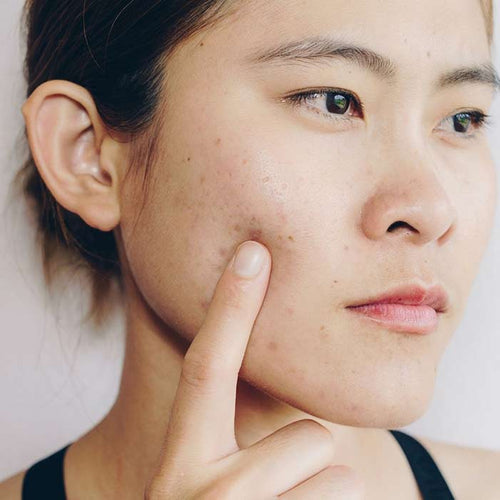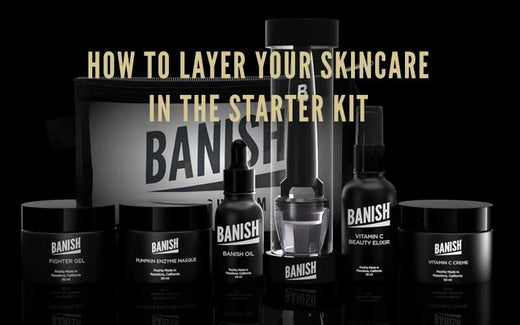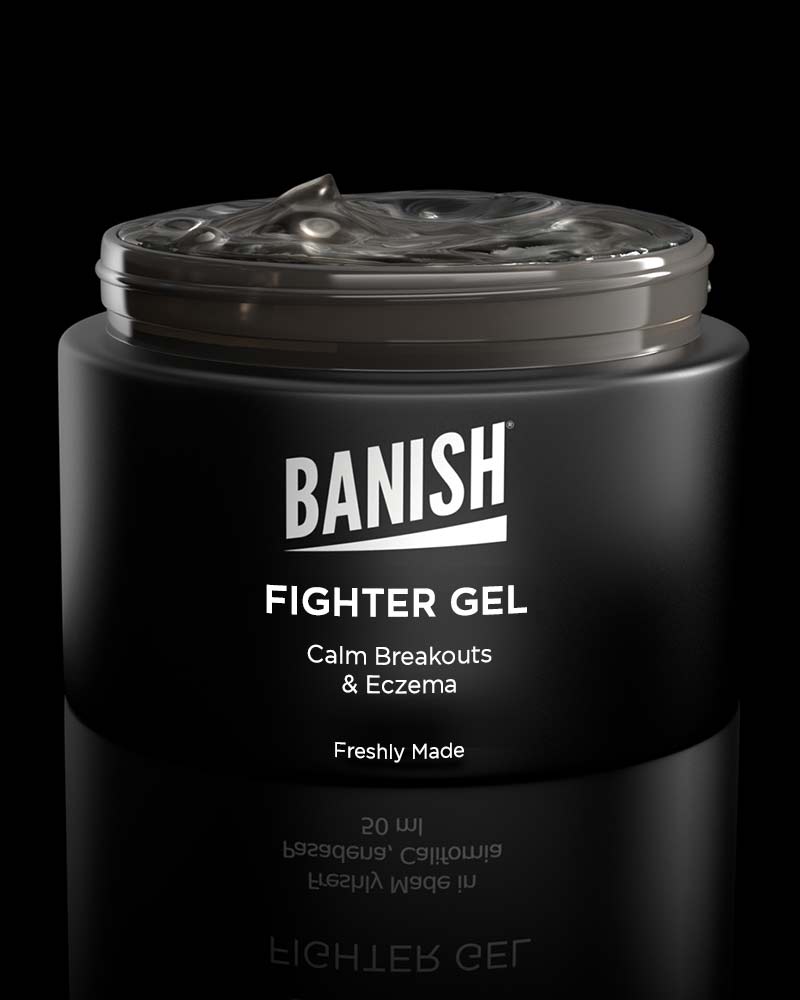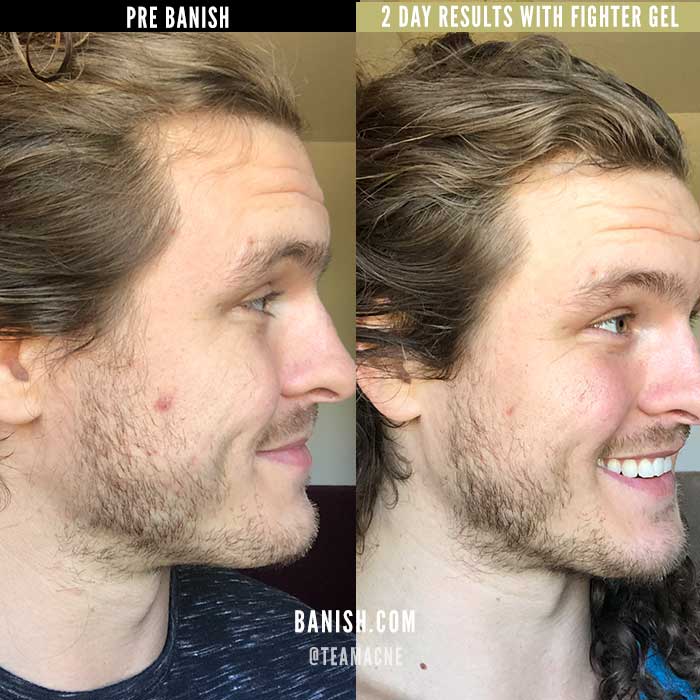Is there a direct link with your skin barrier and acne breakouts? Of course. In this blog, I’ll break down what exactly the skin barrier is, how a damaged skin barrier can be causing acne, and how to repair a damaged skin barrier. You might be over-exfoliating your skin barrier or damaging it - which in turn can cause irritation and more breakouts.
What Is The Skin Barrier?
The skin barrier is the moisture barrier and protective layer of the skin that is composed of ceramides, lipids & fatty acids, and a chemical pH barrier. It acts as a shield from environmental factors and bacterial infections. It also keeps hydration within the skin.
“One vital function of the skin is to form an effective barrier between the organism and the environment. It maintains an ‘inside-outside’ barrier regulating water loss, and an ‘outside-inside’ barrier protecting the organism from external harm, including mechanical, chemical, and microbial” (source).
To put it in simple terms, your skin barrier is the layer of skin that stands between you and the world. Let’s say that your skin barrier is basically a security guard for your skin.
A healthy skin barrier is very crucial when it comes to the health of your skin. When your skin barrier is damaged, your skin becomes more susceptible to external factors like pollution, UV damage, physical abrasion, and chemical irritants.
What happens when your skin barrier is damaged?
Acne can get much worse when you have an impaired skin moisture barrier as a result of the increased irritation and inflammation in the skin. Other skin conditions like eczema and rosacea can also flare up. Bacteria can infiltrate the skin easier too if the skin barrier is damaged.
How does the skin barrier become damaged?
These are the main ways that the skin barrier can become damaged and impaired. Protect yourself from these factors or avoid doing these damaging actions.
- Pollutants
- Environments that are too humid or too dry
- Over-exfoliation
- Over-washing & using cleansers that strip the skin barrier of its natural oils
- Stress
- Too much sun exposure
- Overuse of alkaline products
- UV Radiation
What are some signs that your skin barrier is damaged?
- Sensitivity
- Redness
- Tingling
- Dehydration
- Itchiness
Typically, it is fairly easy to recognize if your skin barrier is damaged or not. You will most likely experience a few of the symptoms listed above, typically starting with redness.
Another common complaint from someone with a damaged skin barrier is that products will sting or burn when applied to the skin. Your skin becomes a lot more sensitive when touched or when applying products. So sometimes, the product itself could be perfectly fine, but the issue could be your skin barrier is so damaged, that your skin is sensitized and reacting to almost everything it comes in contact with.
How Do You Repair a Damaged Skin Barrier?
One of the first things you should do to repair a damaged skin barrier, is to be sure that you are not over cleansing your skin - or make sure you are using a cleanser that is not stripping your skin of necessary oils.
Go back to Basics
You should re-evalute the products that you are using on your skin. Are you using a 10-step routine? Perhaps you are using an excessive amount of products and need to go back to the basics such as: Cleansing, Moisturize, and Sunscreen.
Fragrance free products may be beneficial for your skin if it is damaged too if you notice that you react to fragrances.
The All Clear Mint Cleanser is a gentle cleanser that does not over strip or leave the skin feeling excessively dry. You may want to stick with using non acid actives in your cleansing routine while healing your skin barrier such as avoiding salicylic and glycolic cleansers.
Take a break from some of the products you are using that may not be crucial for your skin. Y
ou could try a simple cleanse - maybe double cleanse with a gentle oil cleanser if you wear makeup, moisturize with a gentle and hydrating moisturizer that fits your skin type, and apply sunscreen or SPF for 2-4 weeks to see if that helps repair your skin barrier.
We recommend moisturizing with the Vitamin C Creme which uses a stable and non irritating form of vitamin c
If your skin is feeling sensitive to the touch, stop using all active treatments temporarily and keep skin hydrated and moisturized.
It is important to lock water and moisture in. If you’re keeping essential water in your skin, you’ll be able to speed up the healing process and your skin will become less irritated.
You may feel like your skin needs to be exfoliated, but stay away from exfoliants until your skin barrier is restored. Certain acne products have irritating products to it too such as retinol and its derivatives which may cause too much irritation on a damaged skin barrier.
Don’t worry, once your skin barrier is restored you can get back to exfoliating every once in awhile and adding back in your acne treatments, but for now just give it 2-4 weeks to rest and your skin will feel and look better after it's barrier has repaired. Your skin will thank you.
Recommended Routine:
References:
Jeffrey RajkumarNeha ChandanPeter LioVivian Shi; The Skin Barrier and Moisturization: Function, Disruption, and Mechanisms of Repair. Skin Pharmacol Physiol 13 November 2023; 36 (4): 174–185. https://doi.org/10.1159/000534136
Elias PM. Skin barrier function. Curr Allergy Asthma Rep. 2008 Jul;8(4):299-305. doi: 10.1007/s11882-008-0048-0. PMID: 18606081; PMCID: PMC2843412.
Skin barrier function
Authors: Dr Jenny SW Yun, Resident Medical Officer, Royal Melbourne Hospital, Melbourne, Australia; A/Prof Rosemary Nixon, Skin Health Institute, Melbourne, Australia. March 2021




























3 comments
Savannah
I have the Vitamin C creme and have used it for nearly 2 years. Up until July of this year my skin was doing okay and then it started getting wonky, and idk if it is the vitamin C or what. I took out the Fighter Gel because I had been using that a lot and have cut back on how often I use the Pumpkin Masque. And I have tried the Mint Cleanser just to patch test it and I think it was responsible for a new spot that appeared but I’m not sure. My skin barrier is probably damaged or it could be an internal issue I am having idk.
Banish
@nikki, makeup remover wipes can be harsh for acne too from the rubbing with the actual wipe. Any physical rubbing on the skin can lead to irritation. Try a cream based cleanser or balm to remove makeup, and then cleanse a 2nd or maybe a 3rd time with a foaming or gel based cleanser to remove the leftover oil and makeup. The all clear mint cleanser is a gel cleanser that works well as the final cleanser!
Nikki
What would be the best way to remove makeup everyday? I have used makeup remover oil before but it seemed like it was breaking me out. Now, I use the makeup remover wipes and I still break out pretty bad. I have combination skin.
This article spoke to me, I think my damaged barrier is what is causing my breakouts. So I just purchased the recommended routine and will try it for 2-4 weeks and see how it works. Thank you for the suggestion!
Leave a comment
All comments are moderated before being published.
This site is protected by hCaptcha and the hCaptcha Privacy Policy and Terms of Service apply.